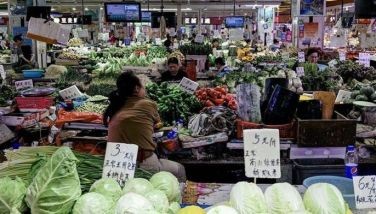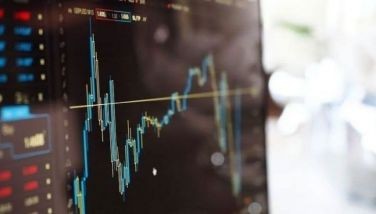Food business at risk from inflation, forex
MANILA, Philippines — The agriculture-food industry is expected to continue to play a key role in the Philippines and other Southeast Asian countries’ economic growth, but rising inflation and currency instability are seen to pose risks to the sector, according to a study by Oxford Economics.
In the study commissioned by Food Industry Asia to assess the economic impact of the agri-food sector in major Southeast Asian economies such as the Philippines, Indonesia, Malaysia, Thailand and Vietnam in 2021, Oxford Economics said the sector, which has played a critical role in in the region’s resilience in the past two years of the pandemic, would continue to do so in its future trajectory as well.
This as the sector not only puts food on the table for the region’s population, but also provides income and employment for a large portion of the workforce, as well as opportunities for businesses.
“In the Philippines, the agri-food sector contributed $126.7 billion to the economy in 2021, equivalent to 32 percent of GDP (gross domestic product),” Oxford Economics said.
The study showed the sector provided 17.6 million jobs or 40 percent of total employment in the country last year.
In addition, the sector contributed $17.3 billion worth of tax revenues last year.
Across the five countries, the agri-food sector contributed $808.7 billion to GDP, sustained around 126.8 million jobs, and was responsible for $104 billion in tax revenues, made up mostly of corporate and income taxes last year.
Oxford Economics said the resilience of the agri-food sector throughout the pandemic was driven mostly by agricultural production and food and beverage (F&B) manufacturing in the region, with most countries covered in the study seeing a continued year-on-year growth in the sectors’ GDP contribution.
“Only in the Philippines is the economic footprint of the agricultural production and F&B manufacturing still smaller in 2021 than it was in 2019,” it said.
Across all Southeast Asian markets, F&B distribution was hurt by travel and tourism restrictions imposed due to the COVID-19 pandemic.
“The sector is enjoying a resurgence this year, with the reopening of borders and hospitality venues, but in every country in our study, its economic footprint was still considerably lagging pre-COVID levels, in 2021,” Oxford Economics said.
Looking into the future, Oxford Economics said it expects continued economic recovery in Southeast Asia in the next five years to fuel demand for food and beverages.
Despite inflationary pressures, it said it expects real wage growth for most countries covered by the study except Thailand due to the ongoing economic recovery which is raising the demand of labor and providing workers bargaining power.
In addition, the revival of tourism is seen to drive the agri-food sector’s performance.
“We forecast the number of tourist visitors to the region to rise from 3.1 million in 2021 to 38.7 million in 2022. Although remaining short of the 123.8 million tourists entering the region in 2019, this rebound will have ripple effects in Southeast Asia’s tourism-centric economies, supporting the broader recovery in domestic demand,” Oxford Economics said.
It said rising prosperity and living standards at home would support the outlook for food and beverage demand in the long term.
The threat of currency stability is also posing a problem for countries like the Philippines that are running large fiscal deficits.
“These countries may face greater volatility and uncertainty in imported input costs, as well as fluctuating prices for major agricultural exports,” it said.
Another challenge is the decline in the working age population in some Southeast Asian countries, and the continued attraction of the cities for young rural workers, which may lead to a deterioration in the agricultural sector’s labor market conditions.
Oxford Economics said the agri-food sector also faces a potential policy risk from new taxes on food and beverage consumption, particularly in countries where value added tax rates are currently low, or reductions in public spending in countries where there are high agricultural subsidies.
“Each of these risks could also hinder the sector’s future recovery and growth,” it said.
- Latest
- Trending






























